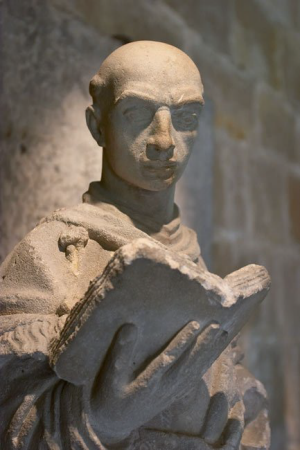
 VERY NOW AND THEN, we have to go back and read the documents. Like all good music directors, I was formed with the primary writings regarding music, those leading up to and following the Second Vatican Council. We must remember, however, not to “proof text” any of these documents any more than we do the Bible.
VERY NOW AND THEN, we have to go back and read the documents. Like all good music directors, I was formed with the primary writings regarding music, those leading up to and following the Second Vatican Council. We must remember, however, not to “proof text” any of these documents any more than we do the Bible.
Last week, at the NPM convention, I attended a presentation on implementation of the propers. As I mentioned last week, I was (and still am) optimistic about the number of people in attendance. The presenter has not put his talk online, and was likely not speaking with the intention of it being a public talk, so I will not share his name. I do want to comment on part of the material, though.
The first thing that struck me was, although this was a talk about propers, how apologetic he was about their use. It seemed to me that he was almost reluctant to give the people more information than they already had, that the propers were a weakness and not a strength of the Roman liturgy. This was reinforced by his emphasis on both Musicam Sacram’s statement (and John Paul II’s reference to it): that Gregorian Chant should have pride of place in the liturgy when it is celebrated in Latin.
This formulation shocked me. I couldn’t remember ever reading that stipulation regarding Gregorian Chant’s primacy. I had to go back to read it for myself, and sure enough, it is there; Gregorian Chant has pride of place in Masses celebrated in Latin. Now, Musicam Sacram doesn’t have the only word on the matter. Both the Constitution on the Sacred Liturgy and the General Instruction on the Roman Missal do not contain the temperance that Gregorian Chant is primary only in Latin.
And then it hit me: was that what Musicam Sacram was saying? That Gregorian Chant should be so highly regarded only in Masses celebrated in Latin?
The reality is that that sentence, divorced from the rest of the document, and indeed from the other documents and contexts about the Liturgy, can say something different than even what the author intended. Indeed, in the same chirograph of John Paul II’s, he praised the worthiness of new compositions based on their comparison with Gregorian Chant as the norm.
This analysis could go around and around, and I suspect that the disposition of the reader (and in this case, the presenter) affects the manner in which these passages are understood. We must be cautious not to put our own interpretation on the text, but to understand it, to the best of our ability, as the writer intended it to be understood.
The Church cautions against literalistic interpretation of Scripture, so why would she insist on that lens for her liturgical documents? Note that I am not encouraging a departure from said documents, or nor a wanton interpretation, but of a solid understanding.
I find life easier when I am given a strict guideline that I can stick to rigidly. Perhaps this is why Biblical fundamentalism is so attractive. The Church isn’t like that. She demands balance, and rarely speaks in absolutes except in moral issues.
Have no fear. Chant. Do it well, and know that you are singing the texts and the music of the Church. Let’s not try to twist words into saying what we think they should say, but what they actually say. I know I had that temptation even when writing this article; I wanted to come down hard on the NPM presenter, hammering him for misquoting the documents so. Indeed, he was quoting them correctly.
But was he correct in his understanding? I think we all, even (mostly!) I, must be in constant evaluation of our actions and the mind of the Church.
So here goes. Let’s try out this fancy “comments” system that the kids are all raving about. What do you think the Church is saying in Musicam Sacram? Is Gregorian Chant only primary in Latin Masses? Does that primacy extend to vernacular celebrations that are overwhelmingly ubiquitous?

